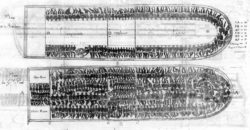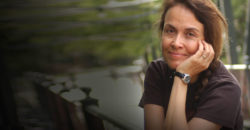
Mexican American poet Juan Delgado first started coming to the United States with his family when he was a child. He attended California State University, San Bernardino, where he studied accounting before discovering writing and majoring in English. He earned an MFA from the University of California, Irvine, where he was a Regents Fellow. Delgado’s collections of poetry are Green Web (1994), selected by poet Dara Weir for the Contemporary Poetry Prize at the University of Georgia; El Campo (1998); A Rush of Hands (2003); and Vital Signs (2013), a book about his hometown of San Bernardino, winner of the American Book Award, given by the Before Columbus Foundation. His poems have been included in the anthology Touching the Fire: Fifteen Poets of Today’s Latino Renaissance (1998).
Delgado’s work often portrays the realities of the immigrant experience, with its attendant poverty, hardships, and love. In El Campo, Delgado’s poems about Mexican farmworkers and their families are accompanied by paintings by Simon Silva. Rosa Martha Villarreal, reviewing A Rush of Hands for Tertulia, noted the “muted images of personal sorrow and terrified wonder,” adding that Delgado “takes images from the community of shadows, the undocumented immigrants, and gives substance to their being.”
Delgado has been poet-in-residence at the University of Miami. He is a professor of creative writing, Chicano literature, and poetry at the California State University, San Bernardino.
The Evidence is Everywhere
–Juan Delgado
I.
The Santa Anas, childlike and profound,
blanket me; I see the dust stirring the valley
and clouding downtown San Bernardino;
I feel the sting of your loss.
The black oak leaves, brittle, tumbling,
crack under my feet. Is your hand
touching the dryness of my lips?
You sing: “Don’t sit, mountain-still,
a coyote skull whistling.”
I tug at the skin on my wrist, trying
to peel off the seam, my stubbornness.
On Sunday, I wear my only
decent dress, gypsy-green.
I hear heels scurry around me,
Our priest is a hinged tongue,
his verse tucking us in.
Why can’t I focus on anyone’s face?
II.
The winds fly from a canyon’s belly
into a peasant blouse.
A stampede of leaves and twigs rushes by
a patch of grass, scraping across a sidewalk
and dragging their nails, fierce and defiant
as a local poet’s words.
From the sides of mountains, waterfalls
of dust form, and during my pilgrimage,
the fate of lip-stained Styrofoam cups
will not unnerve me. Not worried
about compasses, I’ll go by fences guarding
abandoned lots, through desperate patches of grass,
yellowing, past one-legged billboards of paper
and glue. Resting under the shade of bus stops,
I’ll recite old tales to ward off the haunted
and the debris of family floods piling up.
When the voices on an updraft emphatically
circle like red-tailed hawks, I’ll recall
the tail of a comet urging you to wrap
yourself in its flames and dissolve.
Entranced by a burning equal to yours,
I’ll walk eighty miles, traveling the routes
of my childhood candy wrappers.
III.
In the moisture
of a dirt road I traveled,
you are the rain that visited
the night before.
Does your tongue sense
the heat of bodies flying
in the Santa Anas?
Again, I am lost tracing
your face, a dry playa,
the eyes of clay, a brown
maze of upward glances.
Are you a creek bridge,
a fallen cedar, lodged
between sunbaked boulders
inviting me to cross?
You are the one
taking away my fear
of being wheeled down
a hallway without doors.
IV.
With twigs in my hair, I was found
somewhere near the national forest.
Bystanders pulled back their sniffing dogs
while I stood, barefoot and tired.
When I predicted earthquakes in China,
Peru and Cucamonga, California,
I baffled my psychiatric ward.
After a nurse removed my handout
of The Seasons: Winter, wildlife appeared
on the hospital grounds. A mule deer’s
antlers surfaced in the parking lot,
weaving among the staff’s cars.
A coyote leaped into the patients’ garden
and howled under a security light
as if to say: “I am here. Where are you?”
A roadrunner scooted across a lot,
losing one of its long tail feathers.
All this had the staff checking again
if their office windows were latched.
In my notebook, I drew a coy face
with blurry dots for eyes that peer out
of a hollow trunk, struck by lightning,
charred by fire, with smoke still rising
under your vaulted sky.
V.
Outside my window,
the sky is suddenly
draped by a hum,
a hummingbird’s hunger.
Her wings wrinkle the sky.
Unlike
a chickadee too busy
and full of seed chatter,
the hummingbird
puffs up the air,
feeding like a storm,
a redness, a sideway rocket
past the world’s ear.
That spark reminds me of you.
Thin-rooted, lingering too
long, absorbed in window
reveries, I’ll be released. Here,
the soil is moist, sponge-like,
storing. Worms surface,
digesting their way up.
I, too, am ready
for the driving winds
of another season.










